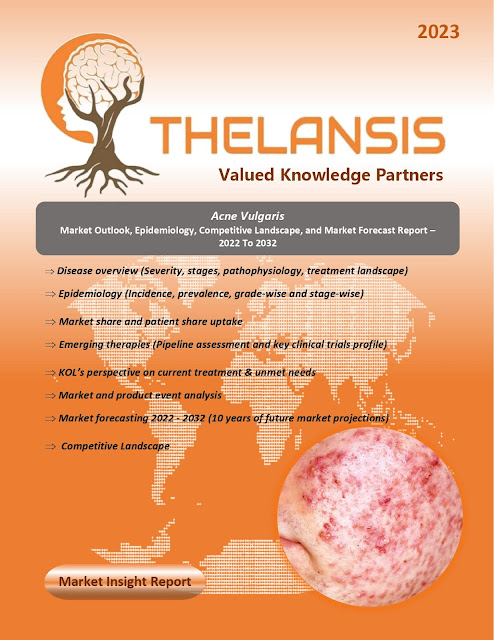Thrombocytopenia Market Outlook, Epidemiology, Competitive Landscape, and Market Forecast Report – 2021 To 2032
Thrombocytopenia is defined as the
deficiency of platelets (thrombocytes) that increases the risk of bleeding. It
occurs when the bone marrow produces insufficient platelets or when an
excessive number of platelets are destroyed or accumulated within an enlarged
spleen. In this condition, the platelet count of patients drops down to less
than 150 x 103 per μL. Typically, platelet counts higher than 50 x 109 per L do
not lead to clinical problems unless platelet dysfunction co-exists with the
low count; instead, they are picked up on a routine complete blood count. It is
classified as Idiopathic Thrombocytopenic Purpura, Thrombotic Thrombocytopenic
Purpura, Drug-Induced Thrombocytopenia, and others based on etiology. Immune
(Idiopathic) Thrombocytopenic Purpura is an acquired immune-mediated disorder
that occurs due to the destruction of premature platelets. It is characterized
by minimal bleeding or severe hemorrhage such as mucosal, intracranial,
gastrointestinal, and genitourinary. Thrombotic Thrombocytopenic Purpura occurs
due to the formation of abnormal blood clots by platelets in the blood vessels,
which results in low platelet counts among the patients. Drug-induced
Thrombocytopenia occurs due to the long-term use of the drugs resulting in the
formation of blood clots among the patients. Drugs attack and destroy blood
platelets, resulting in acute and severe bleeding, bone marrow suppression, or
pressuring the megakaryocyte in producing Thrombocytopenia.
- The prevalence of ITP has been reported to be ranging from
4.5 to 10.5 cases per 100,000 persons in adults and 4.6 cases per 100,000
in children.
Thelansis’s “Thrombocytopenia Market
Outlook, Epidemiology, Competitive
Landscape, and Market Forecast Report – 2021 To 2032" covers disease
overview, epidemiology, drug utilization, prescription share analysis,
competitive landscape, clinical practice, regulatory landscape, patient share,
market uptake, market forecast, and key market insights under the potential Thrombocytopenia
treatment modalities options for eight major markets (USA, Germany, France,
Italy, Spain, UK, Japan, and China).
KOLs insights
of Thrombocytopenia across 8 MM market from the centre of Excellence/ Public/
Private hospitals participated in the study. Insights around current treatment
landscape, epidemiology, clinical characteristics, future treatment paradigm,
and Unmet needs.
Thrombocytopenia Market Forecast Patient
Based Forecast Model (MS. Excel Based Automated Dashboard), which Data Inputs
with sourcing, Market Event, and Product Event, Country specific Forecast
Model, Market uptake and patient share uptake, Attribute Analysis, Analog
Analysis, Disease burden, and pricing scenario, Summary, and Insights.
Thelansis Competitive Intelligence (CI) practice
has been established based on a deep understanding of the pharma/biotech
business environment to provide an optimized support system to all levels of
the decision-making process. It enables business leaders in forward-thinking
and proactive decision-making. Thelansis supports scientific and commercial
teams in seamless CI support by creating an AI/ ML-based technology-driven
platform that manages the data flow from primary and secondary sources.




Comments
Post a Comment